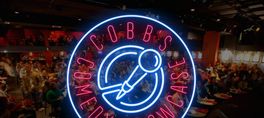https://twitter.com/braziliangirls
https://www.facebook.com/braziliangirls
-------
Over the course of two previous studio albums and countless all-nighters at their East Villageclubhouse, Nublu, Brazilian Girls have established a reputation as New York’s premier international party band. To attend a Brazilian Girls show—with its blur of beats, colors andtextures—is to experience something like time travel: No one else is quite as capable of making afew hours fly by like a few minutes. For the Girls’ third full-length—the follow-up to 2006’s Talk to La Bomb, which SPIN called“multicultural, cosmopolitan, intellectual dance music: Ibiza meets punk, dub goes tango, and trance gets smart.”—singer Sabina Sciubba says she, keyboardist Didi Gutman and drummer Aaron Johnston (bassist Jesse Murphy is on hiatus from the group) wanted to slow down their process.“The pace of recording on our last album was really frenetic,” Sciubba explains. “And we never wanna do the same thing twice. So for this one we decided to really take our time with the writing and recording. We all calmed down a little bit, and we didn’t rush anything.” The result of nearly eight months’ worth of work on their own and with producer Hector Castillo, the boldly titled New York City is Brazilian Girls’ most sophisticated, dynamic effortyet. To be sure, the album contains its fair share (more, really) of up-tempo party-starters: “We just want to have a good time all the time,” Sciubba admits gleefully over an infectious handclap beat in the aptly named “Good Time,” while “Losing Myself” rides a go-go organ groove.
Yet New York City also reveals a deeper, more contemplative side of Brazilian Girls’ sound, one that Johnston says reflects the band’s desire to “actually sit down and write rather than just jamat the club.” Sciubba cites influences like Caetano Veloso and Feist. “I think we were feeling like we wanted to push ourselves in other directions,” adds Gutman. “We were interested in exploring a wider range of emotions.”They certainly succeed on that count. “Strange boy” is a spooky avant-cabaret number in which Sciubba’s echo-chamber vocals float uneasily over forbidding haunted-house horns. “Ricardo”has a sly spy-movie throb. “I Want Out” features gorgeous choral vocals that call to mind Björk’s work on Vespertine. “Mano De Dios” could be the soundtrack to your next yoga session. For “Internacional,” a sleek future-lounge throwdown, Brazilian Girls were joined in the studioby Senegalese superstar Baba Maal, a happy byproduct of Sciubba and Gutman’s work on Maal’s own forthcoming album.
New York City’s title was inspired by the heavy touring Brazilian Girls did in support of Talk toLa Bomb; Scuibba says that after seeing the world and spending time in exotic locales like St.Petersburg and Berlin (both of which have songs named after them here) she discovered that theband’s hometown contains pieces of everywhere else. “You can find a bit of every city in New York City,” she says. Adds Johnston, “This record is about us starting to realize our roots and where all this stuff is coming from.”
The members of the band are sure that the wide variety of fans who make up Brazilian Girls’diverse audience will respond to their latest explorations. “Rather than something cool or hip, I think people are looking for something that touches them,” says Sciubba. “Everyone needs alittle love right now.”
-------
The sexy/quirky/mysterious Brazilian Girls are three men — Didi Gutman on keyboards and computers, Jesse Murphy on bass, and Aaron Johnston on drums — and one woman, Sabina Sciubba, the vocalist who often enjoys wearing lacy eye masks on-stage and sings in no less than five different languages. Sciubba was born in Rome but grew up in Nice and Munich before settling in Brooklyn, NY. She first came to record buyers’ attention when she recorded two jazz albums — You Don’t Know What Love Is with pianist Chris Anderson and Meet Me in London with guitarist Antonio Forcione — for the English audiophile label Naim. She described her meeting with the men of Brazilian Girls as “love at first sight and it moved as fast as the Autobahn.” Falling into the new, playful downtown scene that was revolving around the Nublu club helped speed the band’s success. Like-minded bands like Wax Poetic and the Nublu Orchestra had made the club the hip spot in 2004 for adventurous pop fans and Brazilian Girls’ free-form, bouncy kind of jamming fit right in. Soon they had the Saturday night slot at Nublu, and the East Village press had fallen in love with them. Murphy and Johnston made appearances on John Zorn’s 2003 album Voices in the Wilderness and every Brazilian Girl contributed to Wax Poetic’s sophomore release, the Nublu Sessions, the same year. The Verve Company became interested in the band around this time, thinking they were perfect for the more pop and progressive imprint Verve Forecast. In 2004, the label released the Lazy Lover EP, which included the title track — a chillout room favorite — in its original form and in a remix by the quirky house producer Herbert. The group’s self-titled, full-length debut hit the streets in early 2005. Plenty of touring followed and the band grabbed some new fans from the jam band world when they performed at the Disco Biscuits’ annual Camp Bisco festival. In 2006, they returned with their sophomore release, Talk to La Bomb. New York City, which was co-produced by Hector Castillo and featured appearances by Baaba Maal and Kenny Wollesen & the Himalayas, arrived two years later.
show less
https://www.facebook.com/braziliangirls
-------
Over the course of two previous studio albums and countless all-nighters at their East Villageclubhouse, Nublu, Brazilian Girls have established a reputation as New York’s premier international party band. To attend a Brazilian Girls show—with its blur of beats, colors andtextures—is to experience something like time travel: No one else is quite as capable of making afew hours fly by like a few minutes. For the Girls’ third full-length—the follow-up to 2006’s Talk to La Bomb, which SPIN called“multicultural, cosmopolitan, intellectual dance music: Ibiza meets punk, dub goes tango, and trance gets smart.”—singer Sabina Sciubba says she, keyboardist Didi Gutman and drummer Aaron Johnston (bassist Jesse Murphy is on hiatus from the group) wanted to slow down their process.“The pace of recording on our last album was really frenetic,” Sciubba explains. “And we never wanna do the same thing twice. So for this one we decided to really take our time with the writing and recording. We all calmed down a little bit, and we didn’t rush anything.” The result of nearly eight months’ worth of work on their own and with producer Hector Castillo, the boldly titled New York City is Brazilian Girls’ most sophisticated, dynamic effortyet. To be sure, the album contains its fair share (more, really) of up-tempo party-starters: “We just want to have a good time all the time,” Sciubba admits gleefully over an infectious handclap beat in the aptly named “Good Time,” while “Losing Myself” rides a go-go organ groove.
Yet New York City also reveals a deeper, more contemplative side of Brazilian Girls’ sound, one that Johnston says reflects the band’s desire to “actually sit down and write rather than just jamat the club.” Sciubba cites influences like Caetano Veloso and Feist. “I think we were feeling like we wanted to push ourselves in other directions,” adds Gutman. “We were interested in exploring a wider range of emotions.”They certainly succeed on that count. “Strange boy” is a spooky avant-cabaret number in which Sciubba’s echo-chamber vocals float uneasily over forbidding haunted-house horns. “Ricardo”has a sly spy-movie throb. “I Want Out” features gorgeous choral vocals that call to mind Björk’s work on Vespertine. “Mano De Dios” could be the soundtrack to your next yoga session. For “Internacional,” a sleek future-lounge throwdown, Brazilian Girls were joined in the studioby Senegalese superstar Baba Maal, a happy byproduct of Sciubba and Gutman’s work on Maal’s own forthcoming album.
New York City’s title was inspired by the heavy touring Brazilian Girls did in support of Talk toLa Bomb; Scuibba says that after seeing the world and spending time in exotic locales like St.Petersburg and Berlin (both of which have songs named after them here) she discovered that theband’s hometown contains pieces of everywhere else. “You can find a bit of every city in New York City,” she says. Adds Johnston, “This record is about us starting to realize our roots and where all this stuff is coming from.”
The members of the band are sure that the wide variety of fans who make up Brazilian Girls’diverse audience will respond to their latest explorations. “Rather than something cool or hip, I think people are looking for something that touches them,” says Sciubba. “Everyone needs alittle love right now.”
-------
The sexy/quirky/mysterious Brazilian Girls are three men — Didi Gutman on keyboards and computers, Jesse Murphy on bass, and Aaron Johnston on drums — and one woman, Sabina Sciubba, the vocalist who often enjoys wearing lacy eye masks on-stage and sings in no less than five different languages. Sciubba was born in Rome but grew up in Nice and Munich before settling in Brooklyn, NY. She first came to record buyers’ attention when she recorded two jazz albums — You Don’t Know What Love Is with pianist Chris Anderson and Meet Me in London with guitarist Antonio Forcione — for the English audiophile label Naim. She described her meeting with the men of Brazilian Girls as “love at first sight and it moved as fast as the Autobahn.” Falling into the new, playful downtown scene that was revolving around the Nublu club helped speed the band’s success. Like-minded bands like Wax Poetic and the Nublu Orchestra had made the club the hip spot in 2004 for adventurous pop fans and Brazilian Girls’ free-form, bouncy kind of jamming fit right in. Soon they had the Saturday night slot at Nublu, and the East Village press had fallen in love with them. Murphy and Johnston made appearances on John Zorn’s 2003 album Voices in the Wilderness and every Brazilian Girl contributed to Wax Poetic’s sophomore release, the Nublu Sessions, the same year. The Verve Company became interested in the band around this time, thinking they were perfect for the more pop and progressive imprint Verve Forecast. In 2004, the label released the Lazy Lover EP, which included the title track — a chillout room favorite — in its original form and in a remix by the quirky house producer Herbert. The group’s self-titled, full-length debut hit the streets in early 2005. Plenty of touring followed and the band grabbed some new fans from the jam band world when they performed at the Disco Biscuits’ annual Camp Bisco festival. In 2006, they returned with their sophomore release, Talk to La Bomb. New York City, which was co-produced by Hector Castillo and featured appearances by Baaba Maal and Kenny Wollesen & the Himalayas, arrived two years later.
https://twitter.com/braziliangirls
https://www.facebook.com/braziliangirls
-------
Over the course of two previous studio albums and countless all-nighters at their East Villageclubhouse, Nublu, Brazilian Girls have established a reputation as New York’s premier international party band. To attend a Brazilian Girls show—with its blur of beats, colors andtextures—is to experience something like time travel: No one else is quite as capable of making afew hours fly by like a few minutes. For the Girls’ third full-length—the follow-up to 2006’s Talk to La Bomb, which SPIN called“multicultural, cosmopolitan, intellectual dance music: Ibiza meets punk, dub goes tango, and trance gets smart.”—singer Sabina Sciubba says she, keyboardist Didi Gutman and drummer Aaron Johnston (bassist Jesse Murphy is on hiatus from the group) wanted to slow down their process.“The pace of recording on our last album was really frenetic,” Sciubba explains. “And we never wanna do the same thing twice. So for this one we decided to really take our time with the writing and recording. We all calmed down a little bit, and we didn’t rush anything.” The result of nearly eight months’ worth of work on their own and with producer Hector Castillo, the boldly titled New York City is Brazilian Girls’ most sophisticated, dynamic effortyet. To be sure, the album contains its fair share (more, really) of up-tempo party-starters: “We just want to have a good time all the time,” Sciubba admits gleefully over an infectious handclap beat in the aptly named “Good Time,” while “Losing Myself” rides a go-go organ groove.
Yet New York City also reveals a deeper, more contemplative side of Brazilian Girls’ sound, one that Johnston says reflects the band’s desire to “actually sit down and write rather than just jamat the club.” Sciubba cites influences like Caetano Veloso and Feist. “I think we were feeling like we wanted to push ourselves in other directions,” adds Gutman. “We were interested in exploring a wider range of emotions.”They certainly succeed on that count. “Strange boy” is a spooky avant-cabaret number in which Sciubba’s echo-chamber vocals float uneasily over forbidding haunted-house horns. “Ricardo”has a sly spy-movie throb. “I Want Out” features gorgeous choral vocals that call to mind Björk’s work on Vespertine. “Mano De Dios” could be the soundtrack to your next yoga session. For “Internacional,” a sleek future-lounge throwdown, Brazilian Girls were joined in the studioby Senegalese superstar Baba Maal, a happy byproduct of Sciubba and Gutman’s work on Maal’s own forthcoming album.
New York City’s title was inspired by the heavy touring Brazilian Girls did in support of Talk toLa Bomb; Scuibba says that after seeing the world and spending time in exotic locales like St.Petersburg and Berlin (both of which have songs named after them here) she discovered that theband’s hometown contains pieces of everywhere else. “You can find a bit of every city in New York City,” she says. Adds Johnston, “This record is about us starting to realize our roots and where all this stuff is coming from.”
The members of the band are sure that the wide variety of fans who make up Brazilian Girls’diverse audience will respond to their latest explorations. “Rather than something cool or hip, I think people are looking for something that touches them,” says Sciubba. “Everyone needs alittle love right now.”
-------
The sexy/quirky/mysterious Brazilian Girls are three men — Didi Gutman on keyboards and computers, Jesse Murphy on bass, and Aaron Johnston on drums — and one woman, Sabina Sciubba, the vocalist who often enjoys wearing lacy eye masks on-stage and sings in no less than five different languages. Sciubba was born in Rome but grew up in Nice and Munich before settling in Brooklyn, NY. She first came to record buyers’ attention when she recorded two jazz albums — You Don’t Know What Love Is with pianist Chris Anderson and Meet Me in London with guitarist Antonio Forcione — for the English audiophile label Naim. She described her meeting with the men of Brazilian Girls as “love at first sight and it moved as fast as the Autobahn.” Falling into the new, playful downtown scene that was revolving around the Nublu club helped speed the band’s success. Like-minded bands like Wax Poetic and the Nublu Orchestra had made the club the hip spot in 2004 for adventurous pop fans and Brazilian Girls’ free-form, bouncy kind of jamming fit right in. Soon they had the Saturday night slot at Nublu, and the East Village press had fallen in love with them. Murphy and Johnston made appearances on John Zorn’s 2003 album Voices in the Wilderness and every Brazilian Girl contributed to Wax Poetic’s sophomore release, the Nublu Sessions, the same year. The Verve Company became interested in the band around this time, thinking they were perfect for the more pop and progressive imprint Verve Forecast. In 2004, the label released the Lazy Lover EP, which included the title track — a chillout room favorite — in its original form and in a remix by the quirky house producer Herbert. The group’s self-titled, full-length debut hit the streets in early 2005. Plenty of touring followed and the band grabbed some new fans from the jam band world when they performed at the Disco Biscuits’ annual Camp Bisco festival. In 2006, they returned with their sophomore release, Talk to La Bomb. New York City, which was co-produced by Hector Castillo and featured appearances by Baaba Maal and Kenny Wollesen & the Himalayas, arrived two years later.
read more
https://www.facebook.com/braziliangirls
-------
Over the course of two previous studio albums and countless all-nighters at their East Villageclubhouse, Nublu, Brazilian Girls have established a reputation as New York’s premier international party band. To attend a Brazilian Girls show—with its blur of beats, colors andtextures—is to experience something like time travel: No one else is quite as capable of making afew hours fly by like a few minutes. For the Girls’ third full-length—the follow-up to 2006’s Talk to La Bomb, which SPIN called“multicultural, cosmopolitan, intellectual dance music: Ibiza meets punk, dub goes tango, and trance gets smart.”—singer Sabina Sciubba says she, keyboardist Didi Gutman and drummer Aaron Johnston (bassist Jesse Murphy is on hiatus from the group) wanted to slow down their process.“The pace of recording on our last album was really frenetic,” Sciubba explains. “And we never wanna do the same thing twice. So for this one we decided to really take our time with the writing and recording. We all calmed down a little bit, and we didn’t rush anything.” The result of nearly eight months’ worth of work on their own and with producer Hector Castillo, the boldly titled New York City is Brazilian Girls’ most sophisticated, dynamic effortyet. To be sure, the album contains its fair share (more, really) of up-tempo party-starters: “We just want to have a good time all the time,” Sciubba admits gleefully over an infectious handclap beat in the aptly named “Good Time,” while “Losing Myself” rides a go-go organ groove.
Yet New York City also reveals a deeper, more contemplative side of Brazilian Girls’ sound, one that Johnston says reflects the band’s desire to “actually sit down and write rather than just jamat the club.” Sciubba cites influences like Caetano Veloso and Feist. “I think we were feeling like we wanted to push ourselves in other directions,” adds Gutman. “We were interested in exploring a wider range of emotions.”They certainly succeed on that count. “Strange boy” is a spooky avant-cabaret number in which Sciubba’s echo-chamber vocals float uneasily over forbidding haunted-house horns. “Ricardo”has a sly spy-movie throb. “I Want Out” features gorgeous choral vocals that call to mind Björk’s work on Vespertine. “Mano De Dios” could be the soundtrack to your next yoga session. For “Internacional,” a sleek future-lounge throwdown, Brazilian Girls were joined in the studioby Senegalese superstar Baba Maal, a happy byproduct of Sciubba and Gutman’s work on Maal’s own forthcoming album.
New York City’s title was inspired by the heavy touring Brazilian Girls did in support of Talk toLa Bomb; Scuibba says that after seeing the world and spending time in exotic locales like St.Petersburg and Berlin (both of which have songs named after them here) she discovered that theband’s hometown contains pieces of everywhere else. “You can find a bit of every city in New York City,” she says. Adds Johnston, “This record is about us starting to realize our roots and where all this stuff is coming from.”
The members of the band are sure that the wide variety of fans who make up Brazilian Girls’diverse audience will respond to their latest explorations. “Rather than something cool or hip, I think people are looking for something that touches them,” says Sciubba. “Everyone needs alittle love right now.”
-------
The sexy/quirky/mysterious Brazilian Girls are three men — Didi Gutman on keyboards and computers, Jesse Murphy on bass, and Aaron Johnston on drums — and one woman, Sabina Sciubba, the vocalist who often enjoys wearing lacy eye masks on-stage and sings in no less than five different languages. Sciubba was born in Rome but grew up in Nice and Munich before settling in Brooklyn, NY. She first came to record buyers’ attention when she recorded two jazz albums — You Don’t Know What Love Is with pianist Chris Anderson and Meet Me in London with guitarist Antonio Forcione — for the English audiophile label Naim. She described her meeting with the men of Brazilian Girls as “love at first sight and it moved as fast as the Autobahn.” Falling into the new, playful downtown scene that was revolving around the Nublu club helped speed the band’s success. Like-minded bands like Wax Poetic and the Nublu Orchestra had made the club the hip spot in 2004 for adventurous pop fans and Brazilian Girls’ free-form, bouncy kind of jamming fit right in. Soon they had the Saturday night slot at Nublu, and the East Village press had fallen in love with them. Murphy and Johnston made appearances on John Zorn’s 2003 album Voices in the Wilderness and every Brazilian Girl contributed to Wax Poetic’s sophomore release, the Nublu Sessions, the same year. The Verve Company became interested in the band around this time, thinking they were perfect for the more pop and progressive imprint Verve Forecast. In 2004, the label released the Lazy Lover EP, which included the title track — a chillout room favorite — in its original form and in a remix by the quirky house producer Herbert. The group’s self-titled, full-length debut hit the streets in early 2005. Plenty of touring followed and the band grabbed some new fans from the jam band world when they performed at the Disco Biscuits’ annual Camp Bisco festival. In 2006, they returned with their sophomore release, Talk to La Bomb. New York City, which was co-produced by Hector Castillo and featured appearances by Baaba Maal and Kenny Wollesen & the Himalayas, arrived two years later.
show less
Date/Times:
1270 Sutter Street, San Francisco, CA 94109
The Best Events
Every Week in Your Inbox
From Our Sponsors
UPCOMING EVENTS
Great suggestion! We'll be in touch.
Event reviewed successfully.








